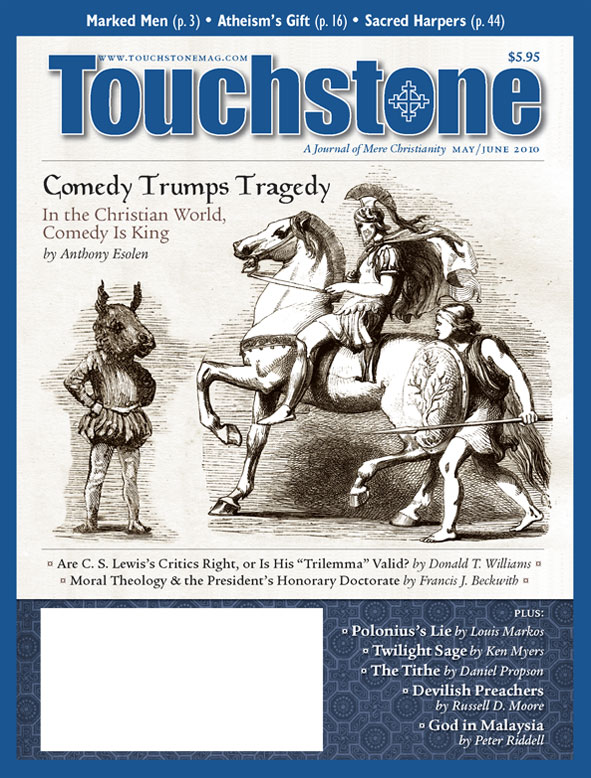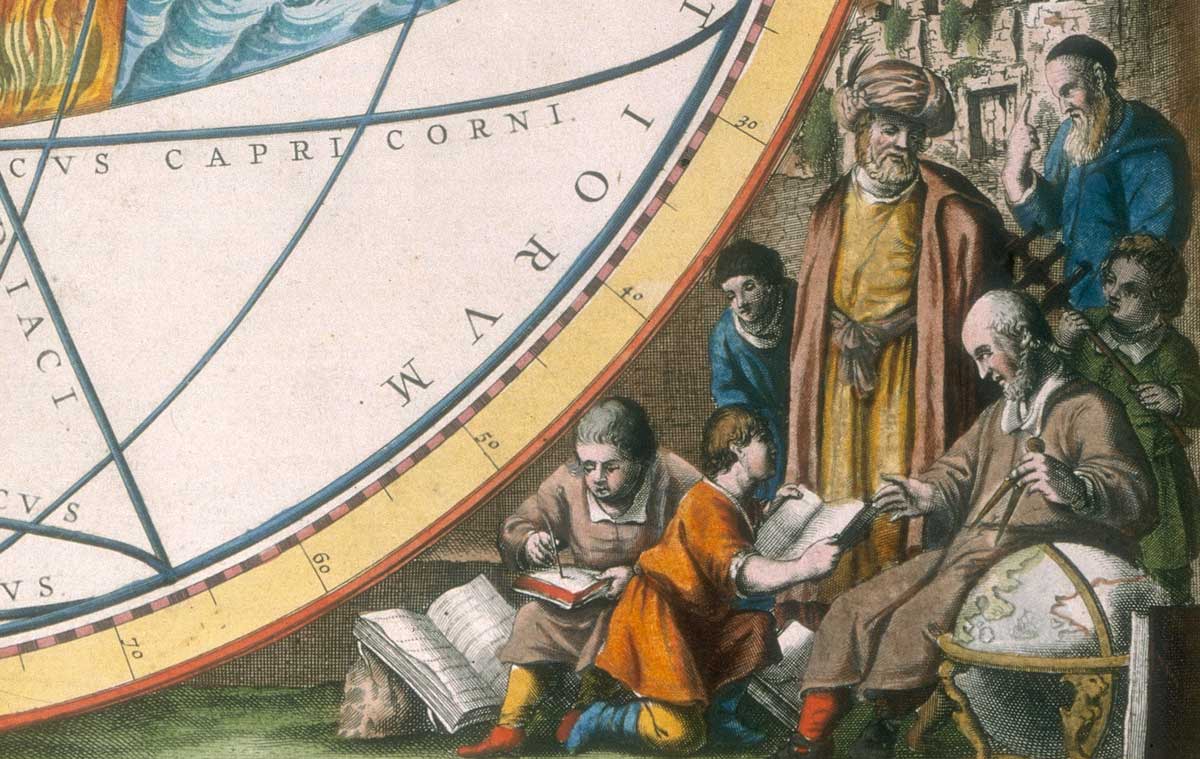Identity Check
Are C. S. Lewis’s Critics Right, or Is His “Trilemma” Valid?
by Donald T. Williams
No argument that C. S. Lewis ever made is more well known—or more controversial—than his famous “Trilemma” (not his word), or “Lord/Liar/Lunatic” (not his phrase) argument for the deity of Christ. N. T. Wright observed accurately in these pages that “this argument has worn well in some circles and extremely badly in others” (“Simply Lewis,” March 2007). Indeed, some of the sharpest critiques have come from within the believing community.
It is ironic that an argument that has become a staple of Christian apologetics should be rejected as fallacious by many who nonetheless presumably accept its conclusion. At stake is not only the validity of a much used argument but also the competence of arguably the greatest apologist of the twentieth century. Are the critics of Lewis’s argument correct? Can we still use the Trilemma? If so, in what way?
Lewis presents the argument in Mere Christianity, in response to a person who says, “I’m ready to accept Jesus as a great moral teacher, but I don’t accept his claim to be God.”
A man who was merely a man and said the sort of things Jesus said would not be a great moral teacher. He would either be a lunatic—on the level with the man who says he is a poached egg—or else he would be the Devil of Hell. You must make your choice. Either this man was, and is, the Son of God: or else a madman or something worse. You can shut Him up for a fool, you can spit at Him and kill Him as a demon; or you can fall at His feet and call Him Lord and God. But let us not come with any patronizing nonsense about His being a great human teacher. He has not left that open to us. He did not intend to. (Bk. II, ch. 3)
The Trilemma is presented not so much as an argument for the deity of Christ as a refutation, a heading off at the pass, of a popular way of evading the claims of Christ. Many non-Christians willingly say Jesus is a great moral teacher; this, Lewis argues, is the one thing we cannot say.
Lewis’s critics contend that his argument commits the fallacy of False Dilemma, the premature closure of options. Marvin D. Hinten alleges that Lewis “overlimits choices.” If it can be shown that there are other legitimate possibilities for how to understand the claims of Christ, it is urged, the argument fails.
These other suggested possibilities fall into two categories. First is the possibility that either Jesus did not actually make the claims attributed to him or, even if he did, he did not mean them as the bald claims to deity for which conservative Christians have taken them.
The second is the possibility that someone could be sincerely mistaken about his identity without being insane in a way that would compromise his views of ethics or his status and authority as a moral teacher.
What Did Jesus Say?
Donald T. Williams is Professor Emeritus of Toccoa Falls College. He stays permanently camped out on the borders between serious scholarship and pastoral ministry, between theology and literature, and between Narnia and Middle-Earth. He is the author of fourteen books, including Answers from Aslan: The Enduring Apologetics of C. S. Lewis (DeWard, 2023). He is a contributing editor of Touchstone.
bulk subscriptions
Order Touchstone subscriptions in bulk and save $10 per sub! Each subscription includes 6 issues of Touchstone plus full online access to touchstonemag.com—including archives, videos, and pdf downloads of recent issues for only $29.95 each! Great for churches or study groups.
Transactions will be processed on a secure server.
more on C. S. Lewis from the online archives
more from the online archives
calling all readers
Please Donate
"There are magazines worth reading but few worth saving . . . Touchstone is just such a magazine."
—Alice von Hildebrand
"Here we do not concede one square millimeter of territory to falsehood, folly, contemporary sentimentality, or fashion. We speak the truth, and let God be our judge. . . . Touchstone is the one committedly Christian conservative journal."
—Anthony Esolen, Touchstone senior editor














